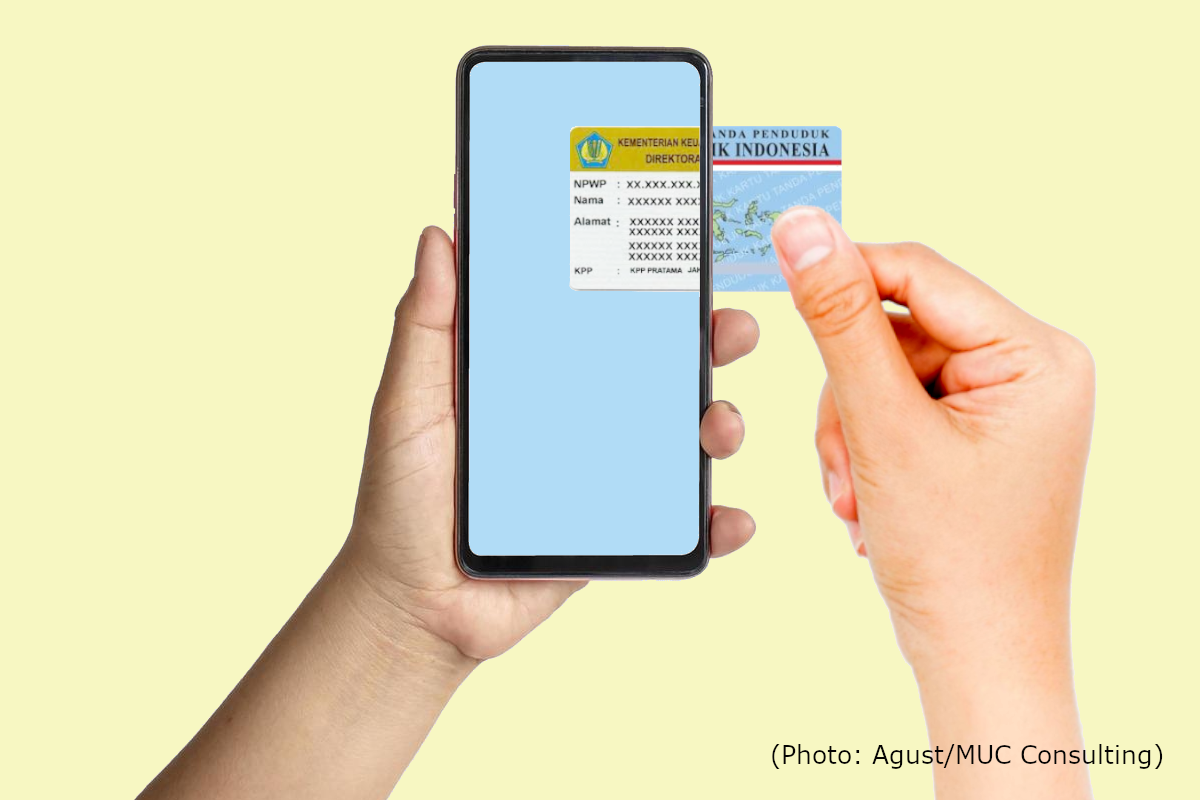Format Changed, Single Identity Number and Official Business Number Replace The Tax ID Number
Thursday, 21 July 2022

The government officially changes and equalizes the format of the Taxpayer Identification Number (NPWP) with the Single Identity Number (NIK) and the Identity Number of Place of Business Activities (NITKU). This 16-digit Tax ID Number policy is implemented in stages with a transition period starting on 14 July 2022.
This change in the Tax ID Number format is intended for resident individual taxpayers, non-resident individual taxpayers, corporate taxpayers, government agency taxpayers to branch taxpayers.
The certainty of this rule is contained in the Minister of Finance Regulation (PMK) Number 112/PMK.03/2022 which was issued on 8 July 2022. This regulation is a derivative of Law Number 7 of 2021 on Harmonization of Tax Regulations (HPP).
For individual taxpayers, the SIN that functions as a Tax ID number is the one listed on the Residential Identity Card (KTP). However, for the time being, the use of SIN in the tax administration process is still limited to certain tax services. It is planned that the Directorate General of Taxes (DGT) will only open access to SIN for all tax administration services starting 1 January 2024.
Activation of the use of SIN as a Tax ID number can only be carried out after the taxpayer's application is granted or the DGT determines it by position. However, previously the DGT will validate taxpayer data with population data at the Ministry of Home Affairs.
The data is said to be valid if the identity of the taxpayer is in accordance with the population data. On the other hand, the data is said to be invalid if the identity of the taxpayer does not match the population data, so further clarification is needed.
Clarification will be conducted through various official channels of the DGT, such as sites, emails, contact centers, and other channels determined by the tax authorities. Upon request for clarification, the taxpayer may make changes to the data that do not correspond to the actual circumstances.
Data and Information in the process of Tax ID Number Validation and Clarification
| Resident Individual Taxpayer | Non-Resident Individual Taxpayer | Corporate Taxpayers & Government Agencies |
|
|
|
Non-Resident
For individual taxpayers whose status is not resident, as well as corporates and government agencies, will use a special 16-digit Tax ID number format. That is by adding the number 0 in front of the 15-digit number that has been listed in the Tax ID number of corporates, non-resident individuals and government agencies.
The process for obtaining a Tax ID number in this new format is the same as for an individual SIN, namely corporate taxpayers, government agencies and non-resident individuals can submit an application to the DGT or it will be determined in office. Then, DGT will validate and clarify the data before activating the new Tax ID number.
Until 31 December 2023, the use of this new 16-digit Tax ID number format is also still limited to certain tax services. After that, the government will open for all tax services.
Meanwhile, the use of NITKU as a Tax ID number is intended for branch or business taxpayers whose location is different from the owner's residence
Sementara itu, penggunaan NITKU sebagai NPWP ditujukan bagi wajib pajak cabang atau kegiatan usaha yang lokasinya berbeda dengan tempat tinggal pemiliknya
Transition Period
During the activation process, individual taxpayers, corporates, government agencies and business branches can still use the old (15-digit) Tax ID number format until 31 December 2023. This transition period also applies if tax administration services or other parties have not been able to accommodate SIN, 16-digit Tax ID number and NITKU.
Starting 1 January 2024, the use of SIN, 16-digit Tax ID number and NITKU will apply to all tax administration services and administrative services provided by other parties as follows:
- government disbursement services;
- export and import services;
- banking and other financial sector services;
- services for the establishment of business entities and business licenses;
- government administration services other than those organized by the DGT; and
- other services that require the use of a Tax ID number;


